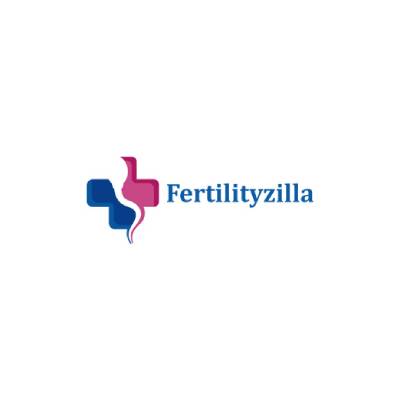What Is Egg Freezing?
Cryopreservation
Dr. Smriti
Jul 19, 2021
Egg freezing process is referred to as vitrification by medical professionals. The first human birth from oocyte was born in 1986. A study of 2016 of 1171 IVF cycles using frozen eggs found that each egg retrieved from a woman under 30 had 8.67% chance of resulting in a child, whereas, for woman above 40, the chances drop to less than 3% per egg.
Egg freezing also known as oocyte cryopreservation, or vitrification is a process in which women’s eggs are extracted, frozen, and stored as a way to preserve a woman’s reproductive potential in reproductive age. Over the past few years, cryopreservation has advanced greatly. As per the American Society for Reproductive Medicine, this process is no longer considered an experimental procedure.
Egg freezing is known to be a safe and helpful procedure for women who are currently not planning for pregnancy but in the future want to conceive and have a biological baby.
What is the age limit of egg freezing?
For egg freezing and successful future pregnancy, timing matters. The optimal age for egg freezing is in your 20’s and early 30’s when you have a higher ovarian reserve and healthier eggs. Once you get your fertility hormone tested it will help you to know about your state of ovarian reserve and this will help you to decide along with your doctor’s suggestion that whether it is right for you or not.
Why egg freezing is done?
Egg freezing is an option if you are not ready to get pregnant now but later in the future want to conceive. In this procedure, you need to use fertility drugs and it will make you ovulate so that you can produce multiple eggs for retrieval.
Egg freezing is considered if:
- When you have a condition or circumstance that can affect your fertility: It may include sickle cell anaemia, autoimmune disorder like lupus.
- When you need treatment for cancer or any other illness that can affect your fertility: Some medical treatments like radiation therapy or chemotherapy can affect your fertility. So egg freezing can help you to have biological children later.
- When undergoing in vitro fertilization: While going for in vitro fertilization, some people prefer egg freezing instead of embryo freezing due to religious or ethical reasons.
Later in the future, you can use these frozen eggs to conceive.
Preparing for egg freezing
Prior to beginning the egg freezing process, the doctor will go through comprehensive medical history along with the focus on fertility, evaluate the regularity of the menstrual cycle, and recommends several blood tests to assess hormone levels.
Every month a woman’s ovary releases one egg. When only a few eggs are available for freezing, the chances for successful pregnancy lowers. To increase the number of eggs, women undergo hormone treatment to stimulate the production of eggs. In this treatment usually, a woman needs to inject herself with hormones at home one to three times a day.
Many women take birth control pills for nearly a month before taking the hormone injections. It helps in suppressing the natural cycle and enhances the efficiency of the hormones.
The type and number of hormones vary. The treatment usually includes:
- For encouraging the ovaries to produce more eggs, for 2 weeks follicle-stimulating hormone (FSH) injection and luteinizing hormone (LH) are given.
- Through halfway of the cycle, an injection of gonadotrophin-releasing hormone is given which helps in preventing too early ovulation.
- To trigger ovulation an injection of human chorionic gonadotropin (hCG) is given.
A regular blood test is done to monitor the effects of hormone treatments. At least one ultrasound is also done to detect ovulation and evaluate egg development.
How does egg freezing work?
After the eggs are ripened the doctor inserts a needle into the ovarian follicle to retrieve the eggs. Normally to guide the procedure the doctor will use ultrasound. Well, if through ultrasound the eggs are not visible then the doctor may perform abdominal surgery to remove them.
In this invasive approach, with the help of sedation and pain medication, a small incision is made in the abdomen and a needle is inserted to extract the eggs.
Once the eggs are retrieved they need freezing as soon as possible. The eggs are full of water so if immediate freezing is done then they may become damaging ice crystals. So to prevent this, the eggs are injected with special by the doctor before freezing them.
In the future when the woman wants to conceive, in vitro fertilization is for her eggs. With the help of IVF, a fertility specialist fertilizes the eggs in the lab, using sperm from the woman’s partner or a donor. Once the procedure is successful the developed embryo is implanted in the uterus of the woman. Most fertility clinics try to develop numerous embryos to increase the chances of a successful pregnancy.
What is the egg freezing success rate?
The clinical pregnancy rate is estimated to be 4-12% per oocyte. Since egg freezing is a new technology to have a better idea more data is needed. Usually, two imperative factors for determining the probability of live birth are the number of eggs available and the age of the woman during egg freezing.
How much does egg freezing cost?
In the field of fertility medicine, egg freezing is a new technology and involves considerable costs. There are two ways to do it. The first way is the retrieval of eggs and freezing them similar to the IVF cycle and the cost may vary between Rs 50000 to Rs 1 lakh.
The second way is an annual cost is there for retaining them in the frozen state and it may cost anywhere between Rs 15,000 to Rs 30,000 per year.
Side effects of egg freezing
There are many side effects of egg freezing, some of them are abdominal pain, nausea, diarrhoea, bloating, and vomiting.
So now if you are planning to freeze your eggs for future pregnancy we at XYZ are there to help you with the best-experienced doctors.
FAQs
What is the best age to freeze your eggs?
To have the best chances of success of live birth in the future you should get your eggs freeze before you are 36. By this age, the qualities of the eggs are good enough to be successful in a future pregnancy.
Is egg freezing painful?
During ovarian stimulation, some of the women experience bloating and discomfort. The process of egg retrieval is done with light sedation and is not painful.
What is the success rate of egg freezing?
Currently, women who use their own frozen egg for treatment have nearly 18% of success rate which do not offer any guarantee of achieving a successful pregnancy.
How long is recovery after egg freezing?
You can go on with your normal activity just after two days of the procedure. You may feel some after-effects of the procedure like bloody discharge, bloating, mild cramping, and constipation.
References
https://www.rockymountainfertility.com/blog
https://www.uclahealth.org/obgyn
https://www.fortishealthcare.com/india/key-medical-procedures
https://www.medicalnewstoday.com/articles/314815#what-to-expect
https://www.rediff.com/getahead/report


[…] The egg freezing technique involves harvesting mature eggs from any woman after her hormonal treatment, and it is identical to the IVF process. Once doctors retrieve healthy eggs in enough amount, they freeze them with the help of the vitrification freezing method. Accordingly, they freeze the eggs in liquid nitrogen at about 190 degrees Celsius temperature rapidly. Later, your doctor will thaw cryopreserved eggs according to the requirements and combine them with sperm cells. In this way, they implant the resulting embryo into the patient. […]
[…] in this case, the doctor will freeze the eggs for future usage rather than transferring embryos back into the uterus. Women may freeze their eggs […]